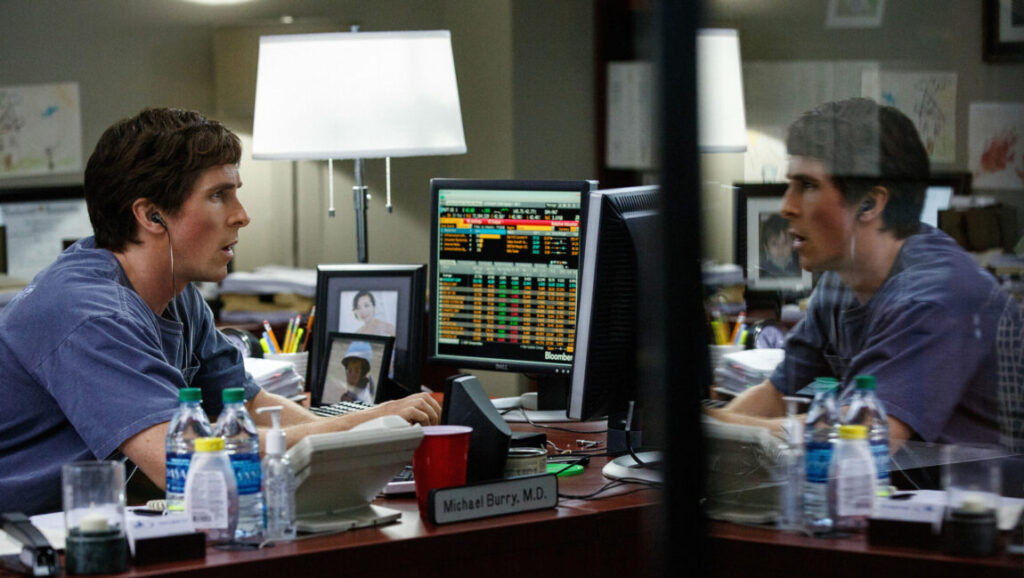News to absolutely nobody: in 2008 a mounting, toxic combination of sheer cluelessness and outright lawbreaking caused the US housing market to collapse, leading to a massive taxpayer-funded government bailout of several enormous financial institutions. In the wake of this, very little new legislation was presented to avoid a similar future problem, virtually nobody was punished (except for, you know, the average citizen who lost a job or home or saw their savings decimated), and everyone went back to business as usual. Pretty infuriating, right? There, you’ve just seen The Big Short. Adam McKay’s film of Michael Lewis’ non-fiction book tracks a loose group of traders, hedge fund managers, and other financial experts who saw the collapse coming, bet against the housing market (and institutional intuition), and turn a tidy profit. It is a very funny movie, because McKay is a veteran comic filmmaker (he also made stuff like Anchorman), and because he has filled The Big Short with gifted performers like Steve Carell, Christian Bale, and Ryan Gosling, all of whom are allowed to freely improvise and generally act like assholes. This is fun because watching smart people be dicks to dumb people is a cornerstone of American comedy. And unlike other McKay films, it doesn’t look entirely like crap. Normally he just sort of plunks the camera down and lets the actors fire away; here, for better or worse, he applies a sort of faux-documentary style (if it were an action film you would liken it to the Bourne movies). Lots of shaky handheld, lots of cuts—it’s ‘realistic,’ which for some reason also entails a lot of blurry shots of computer monitors or fidgety hands. It’s exciting and propulsive in the moment, but shallowly motivated at best. The film attempts to articulate how this financial crisis was brought about—outlining an insanely complicated process that very few people will grasp immediately—by having celebrities (say, Selena Gomez or Anthony Bourdain) show up as themselves and explain arcane terms like “Credit Default Swap.”Amusing, but, like almost everything else that happens, absolutely meaningless dramatically. It makes no difference whatsoever why this mess happened, only that it did. Understanding the technicalities does not make it more or less of a crime, nor the lack of consequences for those responsible more or less egregious. What it does do is take up space that might have otherwise been devoted to more interesting ideas, like just whatever it was these profiteers planned to do with their ill-won loot (one of them invests it in water futures…brilliant, but also kind of evil), or maybe why they didn’t just go to the press in the first place. McKay merely seems interested in complaining that you aren’t as mad as he is. If you really wanted or needed the details of this calamitous fraud, you could simply read Lewis’s book, but McKay seems pretty certain you can’t or won’t. From the top down this film is about how annoying it is to be smarter than everyone.

